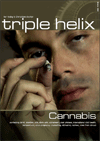'I do want to' said our blessed Lord when asked by a leper if he wanted to cure him. [1] As doctors, it is our huge privilege to participate in healing. The challenge of medicine has been to do well what works and to avoid ineffective treatments.
The National Institute for Clinical Excellence (NICE) was set up to appraise treatments and to promote effective care. Recently published NICE guidance states that anti-dementia drugs should not be provided to people with mild or severe dementia.[2] The appraisal did demonstrate that these drugs do help in all stages of dementia; however, it then used economic analysis to conclude that they were too expensive. The prescribing of acetylcholinesterase inhibitors donepezil, rivastigmine and galantamine was approved for moderate Alzheimer's, that is those achieving a Mini Mental State Examination (MMSE) of between ten and 20. However, despite evidence that it benefits patients who are distressed or behaviourally disturbed, the use of the NMDA-receptor antagonist memantine has been disallowed, except in research studies.
A person's MMSE is highly affected by language skills, deafness and blindness as well as intellectual ability. The guidance is therefore fundamentally discriminatory. Furthermore, following it may lead to increased nursing home costs and perhaps the use of more expensive, less effective drugs. The view that NICE has got this decision wrong is now widespread, and its guidance is now subject to judicial review. Should clinicians follow controversial guidance or treat the sick?
What should Christian doctors do with patients who may benefit from anti-dementia drugs? Obviously a good assessment is required.We should be honest and compassionate both to patients and their carers.We must tell them what treatments might help. We cannot avoid this problem by denying the existence of an effective treatment option. Inevitably, this will identify patients who may benefit from an affordable treatment, despite NICE not supporting this. In such circumstances we must remember our vocation – the patient is our first concern. As a result, we must be willing to risk criticism and even disciplinary action. Effective treatment should be prescribed, even if a guideline – and it's reassuring to note that NICE issues guidance not policy – has told us not to. The alternative will leave sick patients without effective treatment.We need to stand by our vocation. Our Lord wanted to heal and so must we.
































